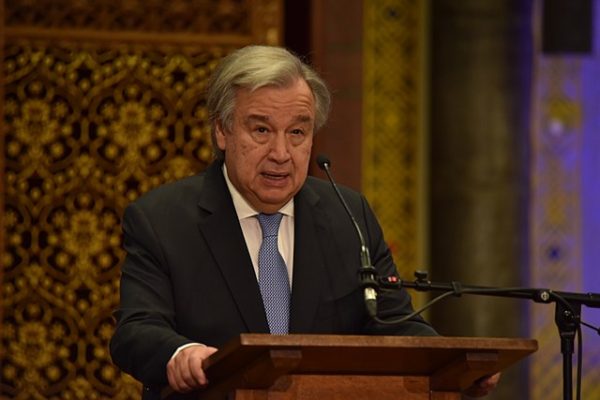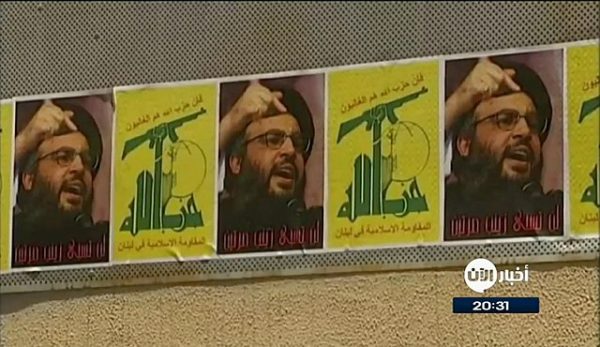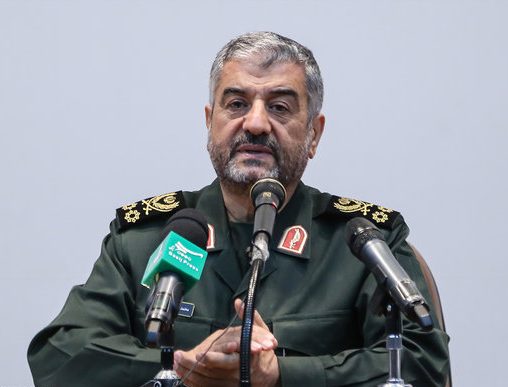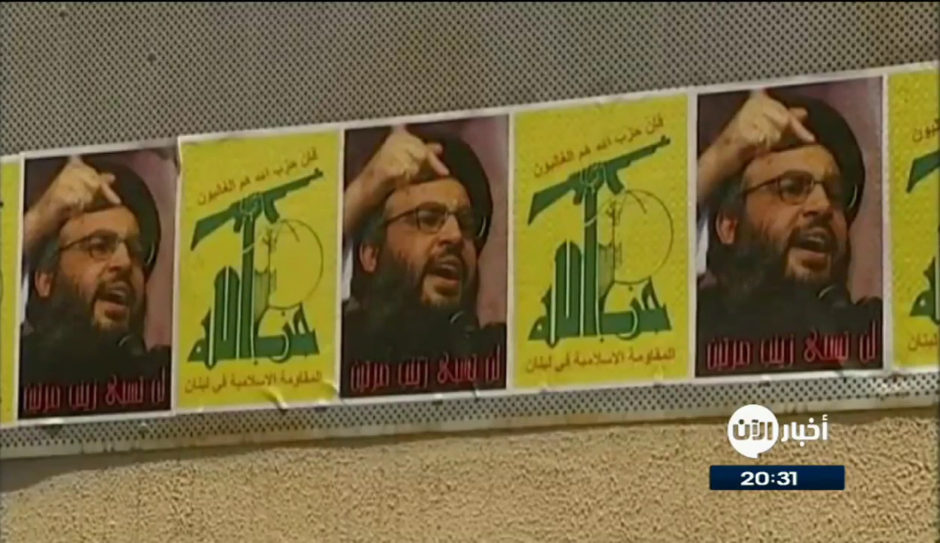United Nations Secretary General Antonio Guterres performed a valuable public service recently when he urged Hezbollah, the Lebanese militia and political party, to cease military activities and disarm.
As well, he called upon Lebanon and the Lebanese armed forces to prohibit Hezbollah from acquiring weapons and building a military capacity outside the framework of the state.
Hezbollah’s arsenal poses “a serious challenge” to the ability of Lebanon’s government to exercise sovereignty and authority, Guterres said. He added, “I call upon countries in the region that maintain close ties with Hezbollah to encourage the transformation of the armed group into a solely civilian political party, and its disarmament.”

Given Hezbollah’s fanaticism, strength and influence, particularly after its relatively strong showing in Lebanon’s recent general election, Guterres’ forthright comments will likely be ignored by the powers-that-be in the country. But Guterres was not wasting his time. He raised an important issue that directly affects Lebanon’s neighbors, especially Israel.
As he correctly pointed out, Hezbollah’s refusal to disarm places it in blatant violation of the 1989 Taif accords, which formally ended Lebanon’s 15-year civil war, and of United Nations Security Council resolutions 1559, 1680 and 1701.
Hezbollah, aided by Iran and Syria, has been amassing an enormous cache of weaponry since its founding in 1985. By all accounts, Hezbollah has accumulated about 120,000 rockets since the month-long war with Israel in the summer of 2006. In the wake of that war, Hezbollah’s leader, Hassan Nasrallah, said it would not give in to “intimidation or pressure” to disarm.

At around the same time, the Lebanese defence minister, Elias Murr, let it be known that “the army won’t be deployed to south Lebanon to disarm Hezbollah.”
Nothing of substance has changed since then.
Nasrallah has vehemently rejected disarmament proposals. The weak Lebanese government has not seriously pressed Hezbollah to abide by United Nations resolutions. Iran, not to mention Syria, have supported him to the hilt.
In one of his last statements on the subject, the commander of Iran’s Revolutionary Guards, Mohammed Ali Jafari, told Iranian state television that Hezbollah will not under any circumstances relinquish its weapons. As he said, “Hezbollah must be armed to fight against the enemy of the Lebanese nation which is Israel. Naturally they should have the best weapons to protect Lebanon’s security. This issue is non-negotiable.”

Last November, Saudi Arabian Foreign Minister Adel al-Jubeir called on Hezbollah to disarm, denouncing it as “a tool of the Iranian Revolutionary Guards” and “a first-class terrorist organization used by Iran to destabilize Lebanon and the region.”
There is a large element of truth in this accusation.
Hezbollah is a destabilizing force in the region. It sparked the 2006 war in Lebanon by attacking an Israeli army patrol inside Israel. The war cost Lebanon dearly in terms of casualties and property destruction. In a future war, if there is one, Lebanon’s infrastructure losses will be considerably higher, as Israeli officials have constantly warned.
Almost two months ago, Israeli Defence Minister Avigdor Liberman spoke of the increasingly symbiotic relationship between Hezbollah and the Lebanese armed forces. “A new reality is coming together against us: the Lebanese army, in cooperation with Hezbollah, the Syrian army, the Shi’a militias in Syria and, above all, Iran — all of them coming together into one front against the State of Israel, the northern front.”
Hezbollah is currently tied down in Syria fighting on behalf of President Bashar al-Assad’s Baathist regime and therefore wants to avoid a new war with Israel. But the day will come when the Syrian civil war will end, freeing Hezbollah to devote itself exclusively to the Islamic crusade against Israel.
Thanks to Iran, Syria and the craven Lebanese leadership, Hezbollah can choose to exercise aggression because it is armed to the teeth. Israeli attempts to intercept Iranian and Syrian arms shipments to Hezbollah have been successful to some degree, but on the whole, the arms convoys from Syria to Lebanon have been getting through.
Israel has no interest in fighting another war with Hezbollah, but this deadly scenario may yet materialize because Hezbollah has not been disarmed and whittled down to size.
